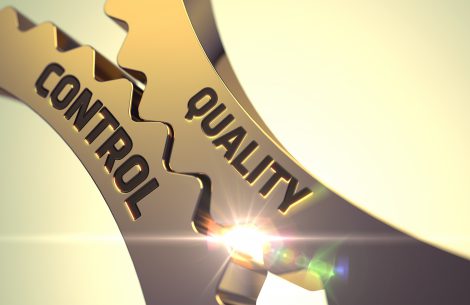Herbal products may be thousands of years old, but today they are evaluated under the newest and most modern technology for quality assurance.
Maintaining the quality of such products involves a strict program to maintain consistency and standards. Safety and efficacy of herbal medicine largely depends on their quality, and the requirements and methods for quality control of finished herbal products, particularly for mixtures of herbal products, are even more complex than for chemical medicines, and are influenced by the quality of the raw materials used, according to the World Health Organization.
The first step to maintain that quality is compliance with Good Manufacturing Practice (GMP), the system that ensures that products are consistently produced and controlled according to quality standards. That way it minimizes risks involved in any pharmaceutical production that cannot be eliminated through testing the final product.
Here are the six key standards to meet in processing of herbal products:
Good Manufacturing Practice (cGMP).
The GMP (also referred as cGMP or current Good Manufacturing Practice) standards are part of quality assurance that ensures medical products are produced and controlled to quality standards for intended use and as required by product specifications The practices are required to conform to guidelines recommended by agencies that control authorization and licensing to the manufacturer and sales of food, drug products, and active pharmaceutical products. The GMP also covers responsibilities for distribution, contract manufacturing, testing, and overall responses to complaints about products and product defects.
Good Agricultural Practice (GAP) or Good Agricultural and Collection Practice (GACP)
The Food and Agriculture Organization of the United Nations (FAO) uses GAP as a collection of principles that applies for on-farm production and post-production processes to ensure safe and healthy food. The World Health Organization developed the guidelines on good agricultural and collection practices for medicinal plants, providing technical guidance on obtaining medicinal plant materials of good quality for the sustainable production of herbal products classified as medicines. Some manufacturers use GAP for medicinal plant production control standards and procedures, to ensure raw material concentration, quality, uniformity and stability. Although GAP is a guiding principle, each ingredient has its own Standard Operation Practice (SOP) with some manufacturers.
Good Extracting Practice (GEP)
GEP covers extraction, condensation, chromatography, crystallization, filtration, drying, etc., all of which are significant for the influence and stability of a medication’s quality and also adds to improved healing impacts.
Good Clinical Practice (GCP)
GCP is an international quality standard in line with International Conference on Harmonisation (ICH) of GCP guidelines. GCP enforces tight guidelines on the ethical aspects of clinical studies in the experimental (non-clinical) research arena. High standards are required in terms of comprehensive documentation for clinical protocol, recordkeeping, training and facilities. GCP aims to ensure that studies are scientifically authentic and that the clinical properties of the investigational product are properly documented. The guidelines also include protection of human rights for the subjects and volunteers in a clinical trial.
Good Supply Practice (GSP)
The GSP is considered an indispensible part of quality and safety control to prevent the possibility of accidents as a result of inferior quality. The practice has been formulated according to the Drug Administration Law of the People’s Republic of China and the Regulation for the Implementation of the Drug Administration Law of the People’s Republic of China for the purpose of strengthening the quality management of drug distribution, standardizing drug distribution behaviors and guaranteeing the safety and effectiveness of drugs for humans.
Good Laboratory Practice (GLP)
In the experimental (non-clinical) research arena, GLP specifically refers to a quality system of management controls for research laboratories and organizations to try to ensure the uniformity, consistency, reliability, reproducibility and quality of their laboratories.

